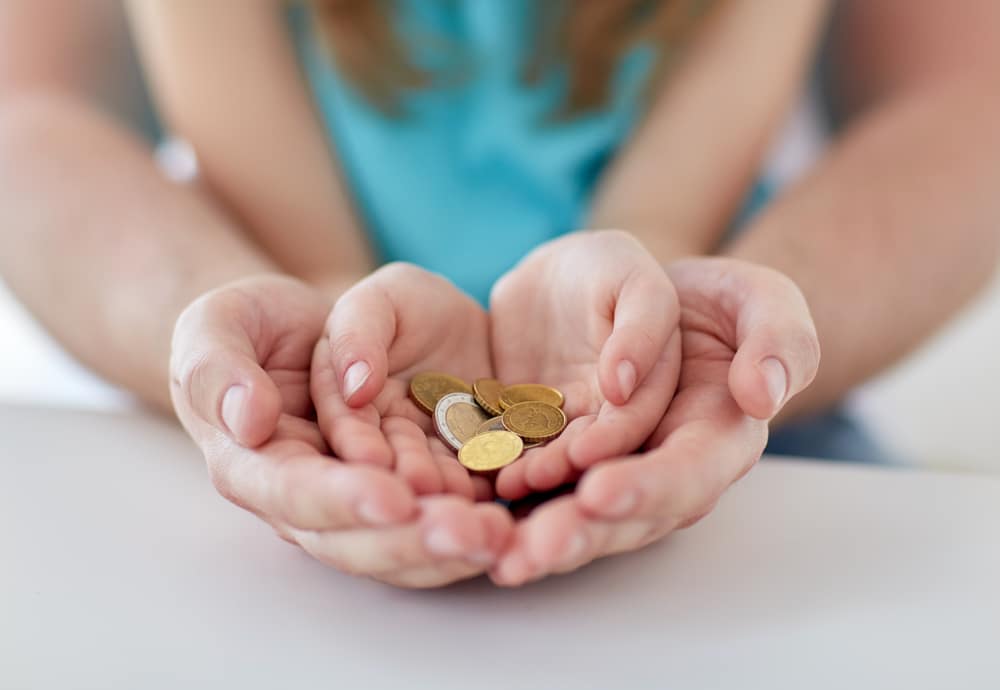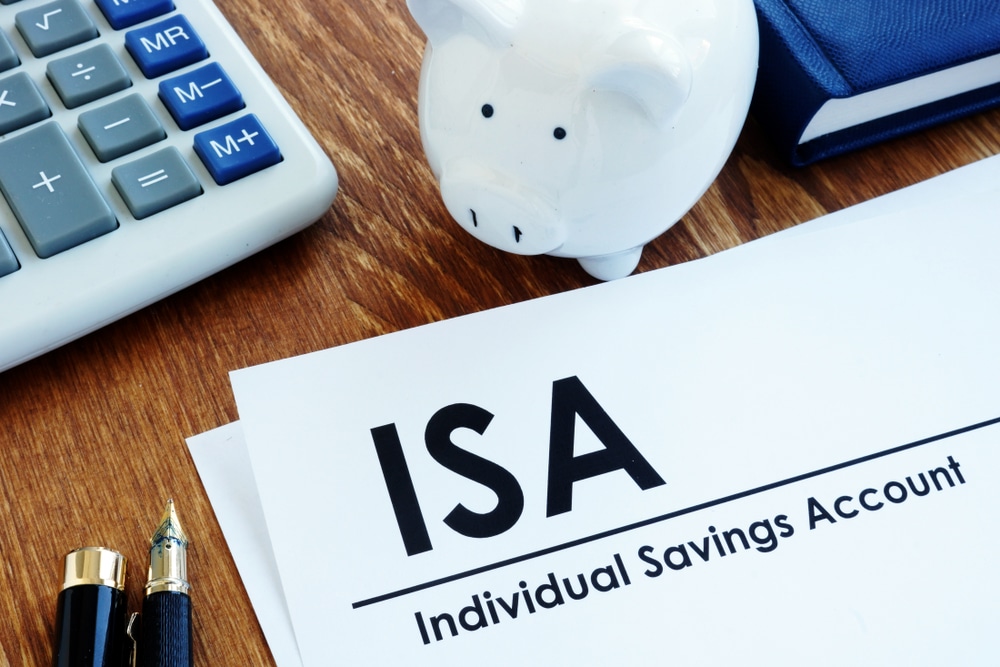Jasmine Birtles
Your money-making expert. Financial journalist, TV and radio personality.


When it comes to Christmas giving, if I’m really honest, there’s nothing quite so acceptable as a cash gift
It’s certainly nice to have things to unwrap but for most people – in particular for most teenagers and young people – the best present is the gift of cold, hard cash.
Apart from the fact that they can spend it on what they like (including paying off debts) there are also tax advantages to them if you give the money in the form of pension, ISA or other payments.
Here’s how to give the gift that keeps on giving this Christmas
When it comes to offering a cash gift to children, grandchildren, as it’s a gift then they don’t have to pay income or any other tax on it.
However…if you happen to pop your clogs within seven years of gifting the money then all or part of what you gave will be added to your estate for inheritance tax purposes. If the value of your estate exceeds £325k at death, then anything over that level could be subject to 40% tax.
So make sure you give the money and stay alive as long as possible!
Having said that, cash gifts can be made annually up to £3,000 (in total) without any tax worries at all – and the previous year’s allowance can be carried over so up to £6,000 could be gifted free from future inheritance tax liabilities.
Not only that but there’s also a small cash gift allowance of £250 per recipient that you can give outside of inheritance tax.
The question is, how best to give that money?

If you had grandparents like mine, you might have got a postal order for a couple of pounds at birthdays and Christmas. My Auntie Pam was sweet enough to put a few crisp tenners into my cards when I got older.
Getting cold hard cash is a very acceptable present for most people at any age, but the worry is that people (well children) could do anything with it. So another way, of course, is to give them money in the form of gift cards. Be careful here and make sure you gift them a card for a store that you’re sure will still be open after Christmas! The OneForAll card (available online and at the Post Office) is handy for this as it covers multiple outlets.
For little ones it can be worth buying them some sort of a piggy bank with lots of coins to put in it, helping them learn about cash and saving money.
However, if you just give children or young people cash without instructions or advice, then their money is unlikely to grow. See below for more ideas that will help them enjoy their money and see it grow.

Parents have to open a Junior ISA (individual Savings Account) for children up to 18. They, and relatives, can put up to £9,000 per tax year (April 6th to April 5th) into it and can either put the money in a Cash JISA or a stocks and shares JISA. Generally stocks and shares do better in the long-run so keep that in mind.
A great Junior Stocks and Shares ISA is Beanstalk. Beanstalk is an app which allows you, or anyone you invite, to save money for your child’s future through a variety of stocks and shares.
Funds can’t be accessed until the child is 18, at which point the JISA converts to an adult ISA. Withdrawals can then be made to help with things like buying a car or university costs or can be left invested and used later for a property deposit.
Jason Hollands of investment firm Bestinvest says “With savings rates on the better JISAs around 2%, and inflation currently running at 4.2% and upward, those willing to take a bit of risk with an invested version could reap much higher returns.’
“A child receiving just £50 a month in an investment JISA that earned 5% pa over 18 years would have a pot at the end worth £17,655, from a total contribution of £10,800. From the same amount put in, the 2% savings JISA would result in a pot of £13,080.
‘”In that time, they can watch the pot grow, and understand the power of compounded return. All of which could have the additional benefit of instilling financial sense and the savings habit,”

Over-18s can be helped by giving them money with strict instructions to set up either a LISA (Lifetime ISA) or an ordinary ISA.
Savers aged between 18 and 39 can deposit up to £4,000 a year into a stocks and shares or cash LISA (we would recommend stocks and shares ISAs), and the government will top it up by 25%. That’s up to £1,000 of ‘free cash’ a year.
But the condition of a LISA is that the pot must go towards either the purchase of your first property (capped at £450k in value) or you stay saving in it until you are at least age 60 and effectively use it as part of your retirement fund. Withdrawals before 60, other than for a first property purchase, will be subject to a 25% penalty in order to claw back the state top-ups.
Find out about LISA’s in this podcast with the Financial Times’s Claer Barrett and IFA David Braithwaite what the pros and cons of LISAs v pensions are. It’s pretty enlightening!
If said young person isn’t interested in a potential extra £1,000 a year on their investments, then suggest a straightforward ISA.While they don’t provide upfront top-ups, all returns on the funds are tax-free and the value of these tax benefits build over time as the pot grows in value,’

A particularly tax-efficient way to invest for your child, grandchild, niece, nephew or friend is to set up a pension for them.
Again, this needs to be done by a parent but once set up anyone can help to build up its funds up to £2,880 a year. Any money put in will be topped up by the government with the tax that would have been paid on that money. So if you manage to put the full amount in each year, that pot will instantly grow to £3,600 thanks to the tax that is put back in. It’s effectively free money!
As with all pensions, returns are free from tax – but of course the child (of any age – this can be done for an adult ‘child’ too) would not be able to access the pot until pension freedom age, which is currently 55 but is set to rise to 57 in April 2028.
However, the frustrations of not being able to touch the gift should be offset by the very visible returns. Even if half the £2,880 was gifted each year to a child from birth to 18 years, with the state top-ups and annual returns of 5% – that would result in a pot of £473,435 by age sixty. That’s from a total gift of the relatively small investment of £25,920.

As gold is becoming more and more popular, parents and grandparents consider gifting their children actual sovereigns or gold bars instead of an actual cash gift. Download this FREE eBook on how to invest in gold to learn more.
Actually, one advantage of sovereigns is that as they are considered currency you don’t pay tax on them when you sell them for a profit. They are the ultimate cash gift!
The price of gold goes up and down all the time but at the time of writing, one troy ounce (slightly more than a normal ounce) is worth £1,340. So you have to be serious about the money you’re giving to be able to offer them a coin or bar of that weight.
Happily there are also ways that you can give them a smaller amount of gold if you can’t quite afford the megabucks for a whole sovereign.
The Royal Mint offers gold bars that are really more gold ‘slithers’ starting at around £65 each.
You can also put in just £25 to their ‘Digigold’ product on behalf of the child which means that they own gold but it is stored for them and they just have a digital certificate to tell them their ownership. This can be sold at any time to get the cash.
Find out more about how, and why, to invest in gold by watching this webinar that we recorded in 2021.

Another cash gift beloved of grandparents particularly is Premium Bonds.
Sold by National Savings and Investments, NS&I, Premium Bonds offer the lure of winning ‘the big one’, but on average, the returns most people get on their Premium Bond holdings is about the same as they could get from savings accounts, even taking into account the tax saving that Premium Bonds offer.
Laura Suter of investment platform AJ Bell says “Premium Bonds, once a more common gift (particularly from grandparents), have waned in popularity, as the interest paid on them has dwindled too. People are now as likely to gift Premium Bonds this Christmas as they are to buy someone Bitcoin – with just 2% of those gifting money planning to do either. Clearly the process for buying Premium Bonds is slightly slicker than transferring crypto, but both are unlikely to make an appearance in most houses this festive season.”
So, if you love Premium Bonds yourself, why not give a few to your younger family members. At least they won’t lose them as they probably would with other forms of gambling. If you would like to give them a long-term investment that will grow, though, it’s better to consider ISAs, pensions or gold as above
Find out 7 great ways to invest for your children here.
This is not financial or investment advice. Remember to do your own research and speak to a professional advisor before parting with any money.
